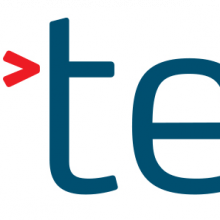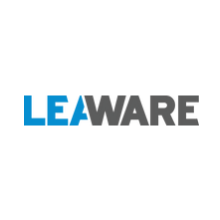
There are 19 Companies in Denmark
that provide NodeJS Development Services!
According to the European Commission’s annual ranking, Denmark is one of the most digitized economies and societies among the 28 EU member states (2025). This is a testament to Denmark’s outstanding IT infrastructure and tech-savvy population.
Discover Top IT Companies in Denmark specialized in NodeJS and other related services. Find the best IT service providers for your projects.
Node Js is a JavaScript runtime environment that allows developers to run JavaScript code on the server-side. Unlike traditional server-side technologies like PHP or Ruby, which are typically used for handling server tasks, Node.js enables developers to use JavaScript for both client-side and server-side development.
Handpicked companies • No obligation to hire • 100% risk-free
Featured Companies in Denmark
This month, the following NodeJS Development companies managed to provide an outstanding service and support. It's worth taking a look.

Copenhagen, Denmark Head office in: United States
Access the Top 1% Tech Talent | 1500+ In-House Developers | Trusted by Fortune 500 Companies
Explore Top NodeJS Development Companies in Denmark

TechGropse Pvt. Ltd. Verified Company
Frederiksberg, Denmark Head office in: United Arab Emirates
Techgropse is a leading Mobile App and Web Development Company, dedicated to turning innovative ideas into remarkable digital solutions. 500+ Clients
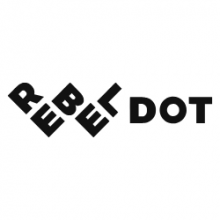
Copenhagen, Denmark Head office in: Romania
RebelDot crafts exceptional web & mobile products leveraging AI, with a focus on honest partnerships and innovation.
Complexity, Transformed - Innovation, Engineered
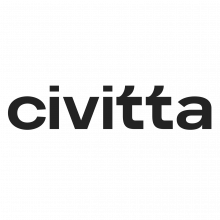
Copenhagen, Denmark Head office in: Lithuania
The Collaboratory. A place where initiative meets inquisitiveness.
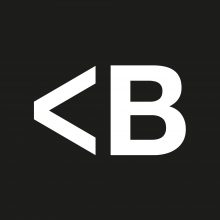
Copenhagen, Denmark Head office in: Germany
From ideation to scaling, we build new software products that drive growth.
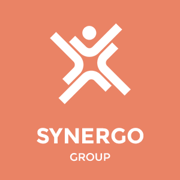
Synergo Group Verified Company
Frederiksberg, Denmark Head office in: Canada
Synergo Group delivers tailored AI, cloud, and data governance solutions, reducing costs for fintech, healthcare, and compliance-driven industries
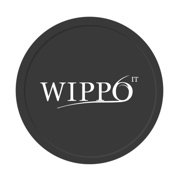
Copenhagen, Denmark Head office in: Moldova
Wippo IT develops diverse custom digital solutions for small, medium-sized and enterprise-grade businesses that streamline, automate and optimize bus...
Full-Stack Custom Development with Transparency
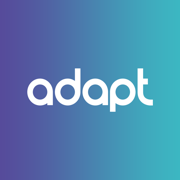
Copenhagen, Denmark Head office in: United States
We are your digital partner, designing best-in-class experiences for your users. With our user-centric and data-driven approach, we take you all the w...

Copenhagen, Denmark Head office in: Canada
Unlock your Digital Potential We help ambitious brands become digital leaders - brands, products, campaigns, and e-commerce.

Copenhagen, Denmark Head office in: Bulgaria
We are Smarch - a dedicated software development agency partnering with digital agencies, large companies and startups.We can be the reliable outsourc...
We are specialists in building software and IoT products.
The best or nothing
Technology is our passion - we want to help companies thrive and expand, in a world of digital opportunities.
Filter NodeJS Development Companies in Denmark by Cities
Find the right tech company near you or from a specific city. Some of the best companies might be located in smaller cities.
Find more NodeJS Development companies around the world
TechBehemoths is the world's most advanced and user-friendly platform to match IT Companies with real clients without hustle.
The IT Industry in Denmark: Country Profile & Overview
According to the European Commission’s annual ranking, Denmark is one of the most digitized economies and societies among the 28 EU member states (2025). This is a testament to Denmark’s outstanding IT infrastructure and tech-savvy population.
85% of Danish citizens are online and actively engaged in the use of a variety of online services, making their digital skills highly advanced. In fact, all communications between citizens and public authorities take place digitally.
It is fair to say that Denmark has set some heavy footprints in the global software development arena. A number of the most used programming languages have been developed by Danish researchers, including C++, TurboPascal, and Visual Prolog. Denmark is also home to world-class software development talent - especially within the fields of security and cryptography, algorithms, AI/ML, wireless network solutions, eGovernment solutions, acoustics software, and robotics.
Since Denmark is a small, highly integrated, and homogenous society, consumers often play an active role in developing new technology and are quick to adopt new technologies. Using Denmark as a test market gives international corporations the advantage of being able to quickly adjust and improve a product at low cost before releasing it on the world market.
Why Work With Danish IT Companies
There are more reasons why working with Danish IT companies is worthwhile - Abundant tech professionals, highly qualified workers, the ease of doing business, and access to a rich and innovative market are just a few to mention.
But let’s take a closer look: Denmark is not the country that faces a workforce shortage in the IT industry. More and more professionals are attracted to work in this industry. What attracts them to work - higher wages, public sector digitalization, and government facilities, combined with 6 hours of work/day, and an attractive social system.
According to the Global Innovation Index 2024, Denmark was ranked at the 10th position out of 133 countries, and the 7th among the 39 economies in Europe. That’s because of lower bureaucracy, digitalization, and a healthy business environment overall.
Highly qualified workers come from tech universities that look more attractive to youngsters than other specialities. And at last, all these lead to an innovative market to which the lucky ones have access.
What to Pay Attention to When Working With Danish IT Companies
With all the facilities and benefits that Danish companies come with, there must be a price. Sure - it’s the money clients pay for the comfort of doing business. Business owners usually pay 15-20% more for digital projects on average when working with Danish IT companies, compared to the EU average. And that’s probably the only thing that could retain from working with a Danish IT company.
How Reliable Are Danish Companies
Reliability and reputation for Danish IT companies and software agencies are very important. But everything comes from the system’s conditions: The less the government pressure, the better the services and the business. A very simple deduction that reveals a part of the truth - Danish companies are reliable because of the policies.
Another part of the story is about tradition. While building its own public sector as a digital sector where there is no need to interact physically with authorities, the Danish digital agencies took over the best practices from countries in the neighborhood. Germany and Sweden have two quite different business models, and the best of both can be found in Denmark. Now, coming back to traditions, Denmark managed to build its own business culture that is distinctive and pleasant at the same time.
What is NodeJS and what are its benefits for your projects?
Node Js is a JavaScript runtime environment that allows developers to run JavaScript code on the server-side. Unlike traditional server-side technologies like PHP or Ruby, which are typically used for handling server tasks, Node.js enables developers to use JavaScript for both client-side and server-side development. Below we’ll dive deeper into the types of projects built with it, and how companies can leverage it for their projects:
Node.js is built on the V8 JavaScript engine from Google, making it incredibly fast and efficient. It uses an event-driven, non-blocking I/O model, which makes it ideal for building scalable and real-time applications. Node.js is particularly well-suited for projects that require high concurrency, such as web applications, APIs, chat applications, streaming services, and more. It has a large and active community, which has led to a rich ecosystem of libraries and packages available via npm (Node Package Manager), simplifying development tasks.
As for the type of projects that can be built using Node.js, we can name the following:
- Web Applications: Many web applications are built using Node.js, often using web frameworks like Express.js. These applications can range from small personal websites to large-scale, enterprise-level platforms.
- APIs (Application Programming Interfaces): Node.js is commonly used to create RESTful APIs that allow different services or applications to communicate with each other. This is essential for building services that provide data to mobile apps, websites, and other clients.
- Real-time Applications: Node.js is favored for real-time applications, such as chat applications, online gaming, and collaborative tools. The event-driven architecture of Node.js is well-suited for handling multiple concurrent connections.
- Streaming Services: Media streaming platforms and services that deliver audio and video content use Node.js to efficiently manage and serve media files to users.
- IoT (Internet of Things): Node.js is used in IoT projects to handle data collection from sensors and devices, process that data, and communicate with cloud services.
- Serverless Functions: Node.js is a popular choice for building serverless functions or AWS Lambda functions due to its lightweight and quick startup times.
Node.js is a versatile technology that can be effectively utilized in both smaller and larger projects, but its suitability hinges on several key factors.
For smaller projects, Node.js offers distinct advantages. Its event-driven, non-blocking I/O model allows developers to rapidly prototype and develop applications. This makes it an excellent choice for creating functional prototypes, minimum viable products (MVPs), or simple web tools swiftly.
Node.js's efficiency in handling I/O operations can lead to responsive user experiences, which is valuable for small-scale applications like personal websites, blogs, or straightforward web tools. Moreover, Node.js itself is lightweight, making it suitable for projects with minimal hardware or resource requirements. It doesn't impose significant overhead, making it a cost-effective option.
Node.js is also well-suited for serving as a backend for Single-Page Applications (SPAs), handling API requests, and serving static files efficiently. Its ability to use JavaScript both on the server and client sides can reduce development costs by enabling code reuse and a single development skill set.
For larger projects, Node.js remains a compelling choice for various reasons. Its ability to handle a large number of concurrent connections positions it favorably for projects with high traffic and user loads. It's designed to scale efficiently, allowing it to distribute workloads across multiple servers or containers, making it scalable and robust.
In larger applications with complex functionality, Node.js can be employed to build microservices that communicate efficiently with each other. This modular approach enhances maintainability and facilitates development on a larger scale.
Node.js's event-driven nature also makes it an ideal candidate for larger projects requiring real-time features. It excels in managing multiple simultaneous connections, making it suitable for applications such as messaging platforms, online gaming, or collaborative tools.
Additionally, Node.js continues to offer development speed advantages regardless of project size, which can be particularly valuable in meeting tight project deadlines.
Furthermore, for larger projects with JavaScript as the primary language on both the frontend and backend, Node.js facilitates streamlined development processes, code sharing, and collaboration among teams working on different parts of the application.




